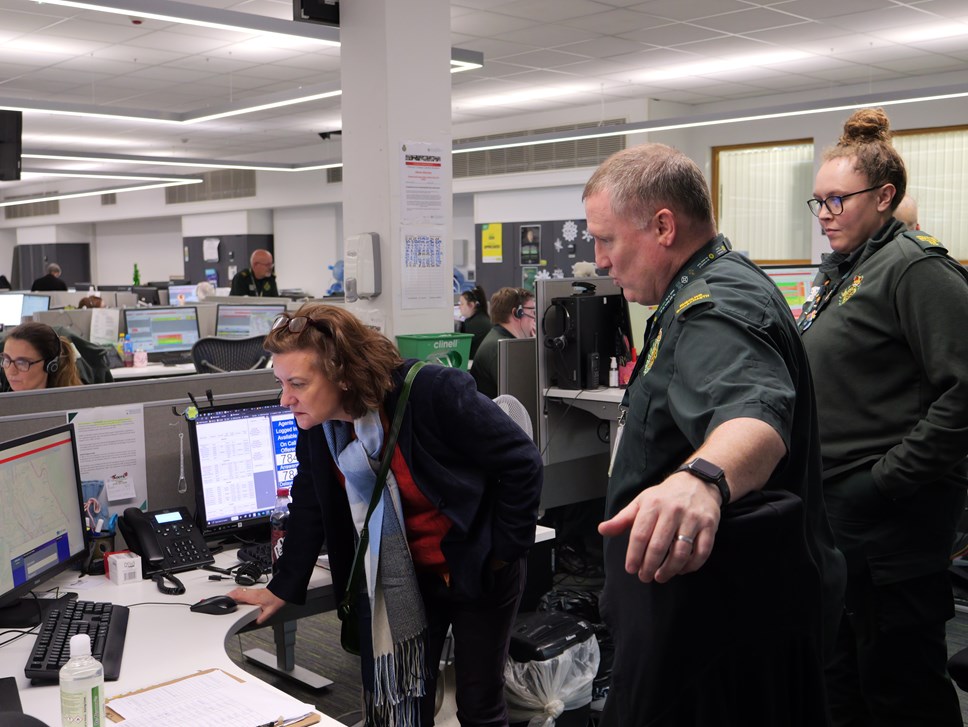
Ambulance service triage team improving experience and reducing pressure on emergency departments
Tîm brysbennu’r gwasanaeth ambiwlans yn gwella profiadau ac yn lleihau’r pwysau ar adrannau brys
A clinical triage team in the Welsh Ambulance Service Trust (WAST) has helped safely prevent thousands of ambulance journeys to hospital, Health Minister Eluned Morgan has revealed.
More than one in ten of 999 patient calls made over the last year have been triaged by WAST’s Integrated Care Team and saw alternative care provided instead of the patient being transported to hospital.
The Integrated Care Team is comprised of 83 clinicians – paramedics, nurses and mental health clinicians – across Wales.
Trauma desk paramedics are also available to support and advise when a patient is seriously injured.
Clinicians review waiting patients and speak directly to 999 callers to establish if other methods of response might be suitable, or whether it is safe to discharge the person at scene, and to ensure the priority assigned to the call does not need to be changed.
Since January 1st this year, the Integrated Care Team has been involved with 96,572 calls, which represents about 25 per cent of all 999 activity for the year.
Of those calls, 39,269 have been managed with clinical advice by telephone and avoided the patient being taken to hospital in an ambulance. This frees up ambulance resources to respond to other urgent calls in the community.
The Health Minister has praised the team following a visit to WAST’s Clinical Contact Centre.
She said:
“The introduction of the Integrated Care Team, supported by Welsh Government funding, has improved efficiency and reduced pressure on the ambulance service and emergency departments. This is particularly important at this time of year when pressure on the NHS is most severe.
“The team has also transformed the quality of care delivered to people in the community by providing them with earlier clinical intervention at scene, and helping to reserve ambulance response capacity for those most in need.
“There is considerable work to do to improve ambulance response times, largely through Health Boards improving ambulance patient handover performance, but I was delighted to see the important work of this team delivering for patients first hand.”
Penny Durrant, WAST’s Service Manager for the Integrated Care Team, said:
“We are really proud of this team, which is signposting patients to the most appropriate services, enabling patients to remain in their own homes and freeing up ambulances to respond to other urgent calls in the community.
“These are the paramedics and nurses who traditionally have helped patients face-to-face, but who are now applying their skills in a different way by triaging patients over the phone.
“At a time when pressures are more prevalent than ever, this is WAST’s way of thinking differently about the way it delivers services.
“It’s about playing our part to alleviate pressures across the wider system and improving the experience for our patients.”
